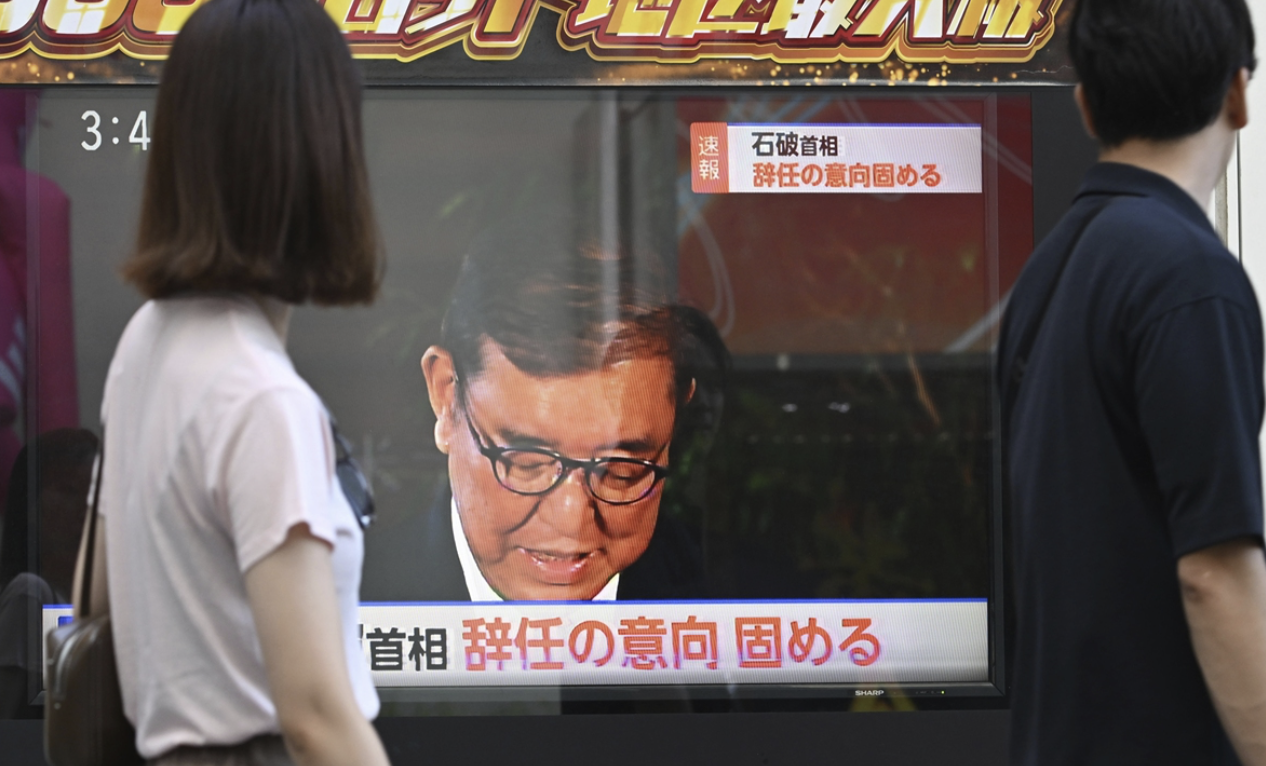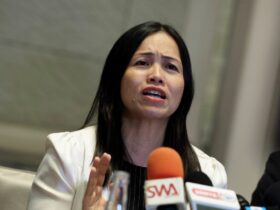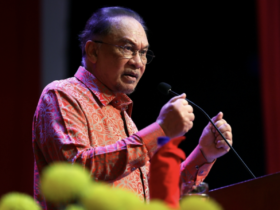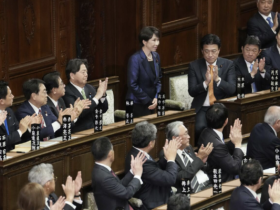TOKYO, Sept 8 – Japanese Prime Minister Shigeru Ishiba on Sunday announced that he will step down as the head of the Liberal Democratic Party (LDP), amid growing calls for him to take responsibility for the party’s election setback, Xinhua News Agency reported.
Japanese Prime Minister Shigeru Ishiba held an impromptu press conference at the Prime Minister’s Official Residence starting from 6:00 pm (local time) on Sunday, according to Nikkei Shimbun. At the beginning of the press conference, Ishiba stated, “I have decided to resign from the position of LDP President,” the report said.
With Ishiba stepping down as party leader, the LDP is expected to set a date for its party presidential election, likely to be held in early October, Asahi Shimbun reported Sunday.
Since the ruling coalition has lost its parliamentary majority, the next LDP president is not guaranteed to become prime minister, although that is likely as the party remains by far the largest in the lower house. Whoever becomes the next leader may choose to call a snap election to seek a mandate, media reports said.
At the press conference, Ishiba explicitly stated that he “will not run” in the next leadership election, Nikkei reported.
According to the report, when asked whether he had considered dissolving the House of Representatives and calling a general election, he revealed, “I do not deny that there were various considerations.”
On tariff negotiations with the US, Ishiba said this is not “a final resolution.” He noted that it is essential to ensure the implementation of the agreement and address any new concerns that may arise, Nikkei Shimbun reported.
Regarding achievements in foreign policy, he emphasized that he had worked to deepen the Japan-US alliance and strengthen cooperation with like-minded countries. According to Nikkei Shimbun, he stated, “I strongly urge the next party leader and prime minister to carry this forward.”
He added, “In response to the most severe and complex security environment since the post-war era, we have steadily advanced a fundamental strengthening of our defense capabilities.”
Reflecting on Ishiba’s approximately one year in power, Lu Hao, a research fellow at the Institute of Japanese Studies at the Chinese Academy of Social Sciences, told the Global Times on Sunday that Ishiba proposed a number of policy concepts and initiatives in the political, economic, foreign affairs and security domains that differed from those of the Kishida administration.
Lu commented that Ishiba emphasized a diversified, relatively balanced independent foreign policy in diplomacy, aiming to correct the previous “one-sided” posture by advancing coordination with China to a certain extent.
During the Ishiba period, China-Japan strategic interaction saw some improvement, with recoveries in economic and people-to-people exchanges and an easing of frictions. However, the structural contradictions between China and Japan remain. In addition, Japan continues to adhere to a basic policy of supporting and cooperating with US strategy, including its measures for competition with China.
The expert said Ishiba’s resignation leaves an impression of a figure with “unfulfilled ambitions,” but it is also undeniable that the Japanese public rated his governance performance poorly, reflecting his failure to deliver on policy promises and his inability to change the status quo.
‘Dignified exit’
Asahi Shimbun reported that the resignation announcement came one day before LDP was to decide whether to hold an early leadership election, a virtual no-confidence motion against him if approved.
Ishiba said during the press conference he would start a process to hold a party leadership vote to choose his replacement and that there was no need for Monday’s decision, according to Asahi Shimbun.
Nikkei reported that Ishiba stated at the press conference “proceeding with the confirmation process for an early leadership election [scheduled for Monday] could risk creating irreparable divisions within the party,” Nikkei reported.
Ishiba’s resignation announcement comes amid mounting pressure within the party following the Japanese ruling party’s major defeat in July’s House of Councilors election.
According to Asahi Shimbun, although Ishiba had previously expressed desire to remain in office, he ultimately abandoned those plans due to mounting pressure from within the party demanding his resignation.
Da Zhigang, director of the Institute of Northeast Asian Studies at the Heilongjiang Provincial Academy of Social Sciences, told the Global Times on Sunday that internal party pressure surged sharply, driven by fears that he would be forced out through a vote which had been scheduled for Monday. “If removed by such a vote, that would be an extremely undignified outcome for both Ishiba and LDP,” Da said.
Voluntarily resigning is seen as a “dignified exit,” Da said.
The expert said that as an early leadership election will be required, there would be a period triggering fierce factional struggles and power realignment.
Asahi Shimbun noted that possible candidates include Japanese Minister of Agriculture, Forestry and Fisheries Shinjiro Koizumi, as well as ultra-conservative former Economic Security Minister Sanae Takaichi, Chief Cabinet Secretary Yoshimasa Hayashi.
Lacking a majority in both chambers, the next LDP leader will have to work with the main opposition parties to get bills passed, reported Asahi Shimbun, or else face constant risks of no-confidence motions.
However, the opposition parties are too splintered to form a big coalition to topple the government, Da told the Global Times on Sunday.
Potential period with policy uncertainty
During the period until the next LDP head is elected, the Japanese cabinet will enter a caretaker mode, capable only of maintaining basic operations, with major policies likely being put on hold, Da commented.
Also, political uncertainty will increase, leading to temporary ambiguity in the direction of economic and foreign policies, the expert predicted.
The expert warned that conservatives may push for a tougher stance toward China, but a major regression is unlikely overall due to deep economic interdependence.
Lu believes that, when the new Japanese prime minister takes office, China-Japan relations – particularly high-level coordination and risk management – will face new uncertainties.
“If a leader with strong conservative leanings and a hardline stance toward China takes office, the negative and disruptive aspects of Japan’s China policy could once again become prominent, potentially leading to a deterioration in bilateral relations,” Lu warned.
Da believes if a conservative leader takes office, they may lean more heavily on the US, promoting enhancements to the US-Japan security alliance and military expansion.
In March, when the Chinese Foreign Minister Wang Yi visited Japan for the bilateral high-level economic dialogue and also the trilateral foreign ministers’ meeting with Japan and South Korea, Mao Ning, spokesperson for the Chinese Foreign Ministry, said at a press conference on March 21 that the China-Japan relationship was showing a momentum of improvement and development.
“We hope that Japan can work with China in the same direction and follow the guidance of the important common understandings between leaders of the two countries as well as the spirit of the four political documents between China and Japan to comprehensively advance the China-Japan strategic relationship of mutual benefit and build a constructive and stable China-Japan relationship fit for the new era,” Mao stated. – Global Times


















Leave a Reply